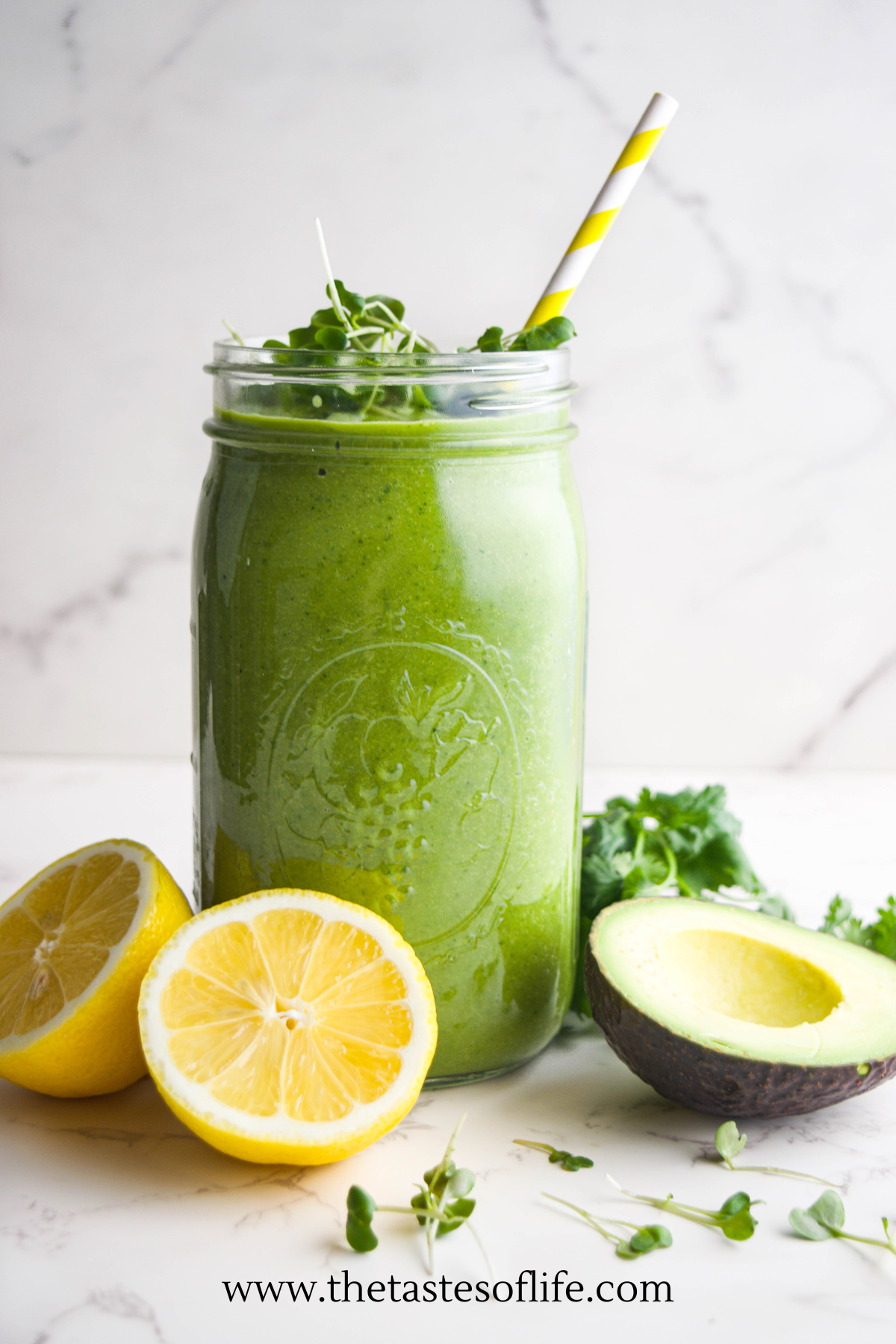Motherwort Health Benefits For Women + Motherwort Tincture
Discover Motherwort health benefits for women, uses, and precautions (botanical name – Leonurus cardiaca), an herbal remedy often used for women’s health, anxiety relief, and cardiovascular support. Learn how to use Motherwort safely and who should avoid it.
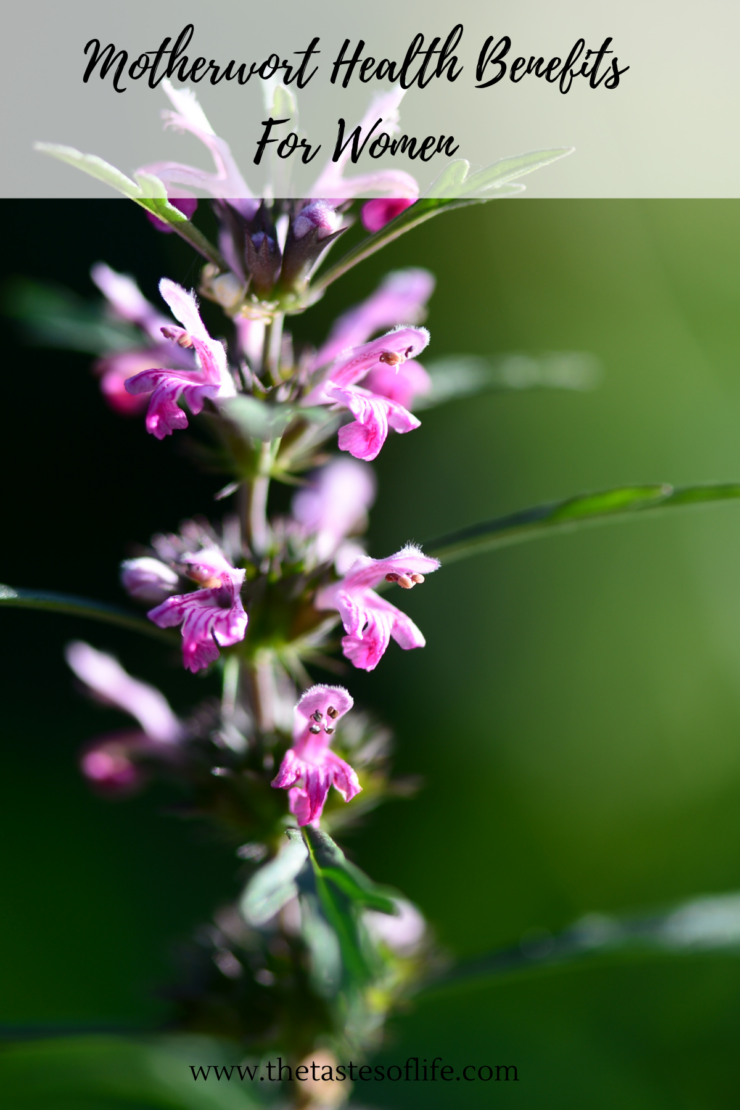
Motherwort Health Benefits For Women
Known scientifically as Leonurus cardiaca, Motherwort is a member of a perennial herb of the mint family, boasting clusters of small pink or purple flowers atop its square stems. Native to Europe and Asia (used in traditional Chinese medicine), it has found its way into the hearts and gardens of herbalists worldwide.
Cultivating Wellness Through Tradition
In traditional medicine, Motherwort has been highly regarded as a medicinal herb. Ancient Greek and Roman physicians recognized its potential, utilizing it to ease menstrual discomfort, support heart health, and calm nervous tension.
One of Motherwort’s primary claims to fame is its ability to support cardiovascular health. Its botanical compounds, including leonurine, stachydrine, and alkaloids, exert a calming influence on the heart and circulatory system, helping to prevent irregular heartbeats and promote healthy blood flow. Motherwort injections can also promote uterine contractions. Whether addressing palpitations, high blood pressure, or simply seeking to maintain heart wellness, Motherwort is an excellent heart tonic.
In addition to its physical benefits, Motherwort is an herbal ally for emotional and mental wellbeing. Its nervine properties soothe frazzled nerves, offering a sense of calm amidst life’s storms. Whether facing anxiety, stress, or moments of emotional upheaval, Motherwort gently cradles the spirit, providing a supportive foundation for inner peace and resilience.
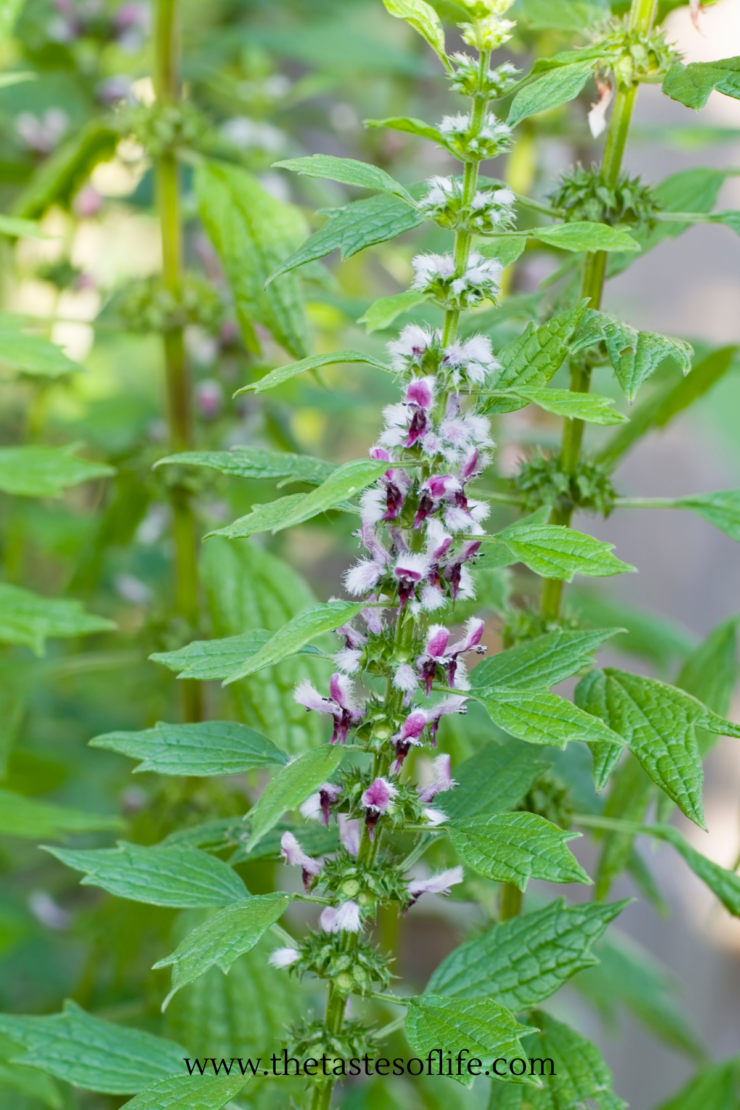
Motherwort Health Benefits For Women and Women Connection
Motherwort is deeply connected to women’s health and spirituality. The name “Motherwort” itself suggests a connection to motherhood and nurturing, and it is deeply connected to the female reproductive system. In many cultures, Motherwort is associated with maternal energy, compassion, and protection. It symbolizes the nurturing qualities of the Divine Feminine and is often used to honor mothers and caregivers. It is associated with feminine wisdom, intuition, and empowerment, reminding individuals to trust their inner guidance and embrace their feminine qualities.
Motherwort has calming and soothing properties that can help heal emotional wounds and provide comfort during times of distress. It symbolizes emotional resilience, inner strength, and the ability to find peace amidst life’s challenges.
In folklore, Motherwort is often used for protective purposes, such as warding off negative energies, evil spirits, or psychic attacks. It is believed to create a sense of energetic boundary and shield the aura from external influences, allowing individuals to feel safe and grounded. In my country, we used it for smoke cleansing with other herbs. For us, Motherworth represented resilience, courage, and perseverance in the face of adversity.
Embracing Motherwort in Modern Wellness Practices
In today’s fast-paced world, the need for gentle yet potent remedies is more significant than ever. From tinctures and teas to capsules and infused oils, there are myriad ways to incorporate Motherwort into daily wellness routines. Whether enjoyed as a soothing cup of tea before bedtime or integrated into a comprehensive herbal protocol, Motherwort offers its healing embrace to all who seek its nurturing touch.
Cultivating Connection with Motherwort
As we navigate the complexities of modern life, reconnecting with the wisdom of the natural world becomes increasingly vital. Motherwort invites us to slow down, listen to the earth’s whispers, and embrace the healing power of plants. Whether grown in a backyard garden or harvested from the wild, cultivating Motherwort fosters a profound connection to nature’s cycles and rhythms. In nurturing this relationship, we support our wellness and honor the ancient traditions that have revered Motherwort for centuries.

Benefits of Motherwort For Women’s Hormones
Motherwort has a deep historical and cultural connection to women’s health, particularly reproductive wellness. Throughout history, women have turned to Motherwort for support during various stages of their lives, from menstruation to childbirth and menopause.
Regulation of Menstrual Cycle:
Motherwort has been traditionally used to support women’s health, particularly during menstruation. Motherwort may help alleviate irregularities in the menstrual cycle and associated symptoms such as menstrual cramps, bloating, and mood swings by regulating hormones such as estrogen and progesterone and helps with regular menstrual flow.
Postpartum Recovery:
Motherwort can help balance hormones, reduce postpartum depression and anxiety, and support the body’s recovery process. Additionally, its ability to regulate the menstrual cycle can aid in restoring hormonal balance after giving birth.
Menopausal Symptoms:
As women transition into menopause, they may experience a range of symptoms, including hot flashes, mood swings, and sleep disturbances. Motherwort’s hormone-balancing properties can help to alleviate these symptoms, offering relief and support during this natural stage of life.
Emotional Wellbeing:
Beyond its physical benefits, Motherwort is valued for its ability to support emotional and mental health, particularly during stress, anxiety, or emotional upheaval. For women juggling work, family, and personal demands, Motherwort can provide a calming and grounding influence, promoting a sense of balance and resilience. It has a mild sedative effect.
Uterine Tonic: Motherwort is often referred to as a uterine tonic, meaning it has a toning and strengthening effect on the uterus. This may be attributed to its ability to promote circulation to the pelvic area and support overall uterine health. Motherwort may help maintain optimal function and support reproductive health by toning the uterine muscles and tissues and preventing uterine bleeding.

How to Connect To Motherwort
Connecting with Motherwort on a personal level can be an enriching experience, fostering a sense of harmony and reverence for the natural world.
1. Cultivate Awareness: Begin by familiarizing yourself with Motherwort’s physical characteristics, growth habits, and medicinal properties. Spend time observing the plant in its natural habitat or in a garden setting. Notice the shape and color of its leaves, the texture of its stems, and the delicate beauty of its flowers. As you deepen your awareness of Motherwort, you’ll better appreciate its healing potential.
2. Harvest Mindfully: If you can access fresh Motherwort plants, consider harvesting them mindfully and respectfully. Before harvesting, ask permission from the plant and express gratitude for its gifts. Harvest only what you need, leaving plenty of plants to thrive and propagate.
3. Create Herbal Preparations: Once you’ve harvested Motherwort, consider creating herbal preparations to incorporate into your wellness routine. You can make a soothing tea by steeping dried or fresh Motherwort leaves and flowers in hot water for 10-15 minutes. Alternatively, you can prepare a tincture by macerating Motherwort in alcohol or glycerin to extract its medicinal compounds.
4. Meditate with Motherwort: Set aside quiet contemplation and meditation with Motherwort as your focal point. Find a comfortable spot outdoors or indoors where you can sit or lie down comfortably. Close your eyes, take a few deep breaths, and invite Motherwort’s energy to surround you. Visualize yourself connecting with the plant on a deep level, absorbing its healing properties and wisdom. Allow any insights or sensations to arise without judgment.
5. Create Rituals: Incorporate Motherwort into your rituals and ceremonies to honor its significance in your life. You might create a sacred altar dedicated to Motherwort, adorned with fresh or dried plants, candles, and symbolic objects. Light a candle or burn some aromatic herbs as you offer gratitude to Motherwort for its support and guidance.
6. Learn from the Community: Connect with other herbal enthusiasts and practitioners who share your passion for Motherwort and natural healing. Attend workshops, classes, or online forums where you can learn from experienced herbalists and exchange knowledge and experiences with like-minded individuals.
Ask Motherwot for Support
Motherwort is a great herb to ask for support when you are struggling. I love to ask her for help, and she never disappoints. I like to sit with her outside under a tree. I ask for permission to connect and then set a clear intention. I hold the herb close to my heart and visualize its energy surrounding me, offering support and guidance. I speak from my heart and ask for guidance. I take some time to listen quietly for any insights, sensations, or messages that may arise. Then, I express gratitude for its presence and support and honor the connection.

How to Use It
- Herbal Tea: To make Motherwort tea, simply steep 1-2 teaspoons of dried Motherwort leaves and flowers in hot water for 10-15 minutes. The tea has a bitter taste, so add honey and lemon juice.
- Motherwort Tincture (Extract of Motherwort): Tinctures are concentrated liquid extracts from macerating Motherwort in alcohol or glycerin. Follow the dosage instructions on the tincture bottle. Typically, 20-40 drops are diluted in water, tea, or juice and taken 1-3 times per day.
- Capsules or Tablets: Motherwort is also available in capsule or tablet form, making it easy to incorporate into your daily routine. Follow the dosage recommendations on the product label, typically 1-2 capsules or tablets taken 1-3 times daily with water.
- Infused Oil: Motherwort-infused oil can be used topically for massage or as a base for herbal salves and balms. To make infused oil, fill a clean glass jar with dried Motherwort leaves and flowers, cover with carrier oil such as olive or almond oil, and let it sit in a warm place for 4-6 weeks, shaking the jar occasionally. Strain out the plant material, and your infused oil is ready.
- Herbal Bath: Add dried Motherwort leaves and flowers to your bath for a relaxing and rejuvenating experience. Simply place a handful of dried Motherwort in a muslin bag or directly into the bathwater and soak for 20-30 minutes. The aromatic properties of Motherwort can help to promote relaxation and relieve tension.
- Herbal Smoking Blend: In some traditions, dried Motherwort leaves are used as part of herbal smoking blends. While smoking is not recommended for everyone due to potential health risks, if you choose to use Motherwort in this way, be sure to do so in moderation and with awareness of your own health and preferences.
Nutritional Properties of Motherwot
Motherwort Health Benefits For Women is primarily valued for its medicinal properties rather than its nutritional content. However, it contains some vitamins, minerals, and other compounds that contribute to its health benefits. Here are some of the nutrients found in Motherwort:
- Flavonoids: Motherwort contains various flavonoids, including rutin, quercetin, and kaempferol, which have antioxidant properties and may help protect cells from damage caused by free radicals.
- Triterpenes: Motherwort contains triterpenes such as ursolic and oleanolic acids, which have anti-inflammatory and hepatoprotective (liver-protective) properties.
- Alkaloids: Motherwort contains alkaloids such as leonurine, stachydrine, and betonicine, which may have cardiovascular benefits, including vasodilatory and hypotensive effects.
- Essential Oils: Motherwort contains small amounts of essential oils, which contribute to its aromatic properties and may have mild sedative effects.
- Vitamins: While not particularly high in vitamins, Motherwort may contain small amounts of vitamin A, vitamin C, and vitamin E, which contribute to its overall antioxidant activity.
- Minerals: Motherwort may contain trace amounts of minerals such as calcium, magnesium, potassium, and iron, although the levels are generally low.
- Phenolic Acids: Motherwort contains phenolic compounds such as rosmarinic acid, which have antioxidant and anti-inflammatory properties.
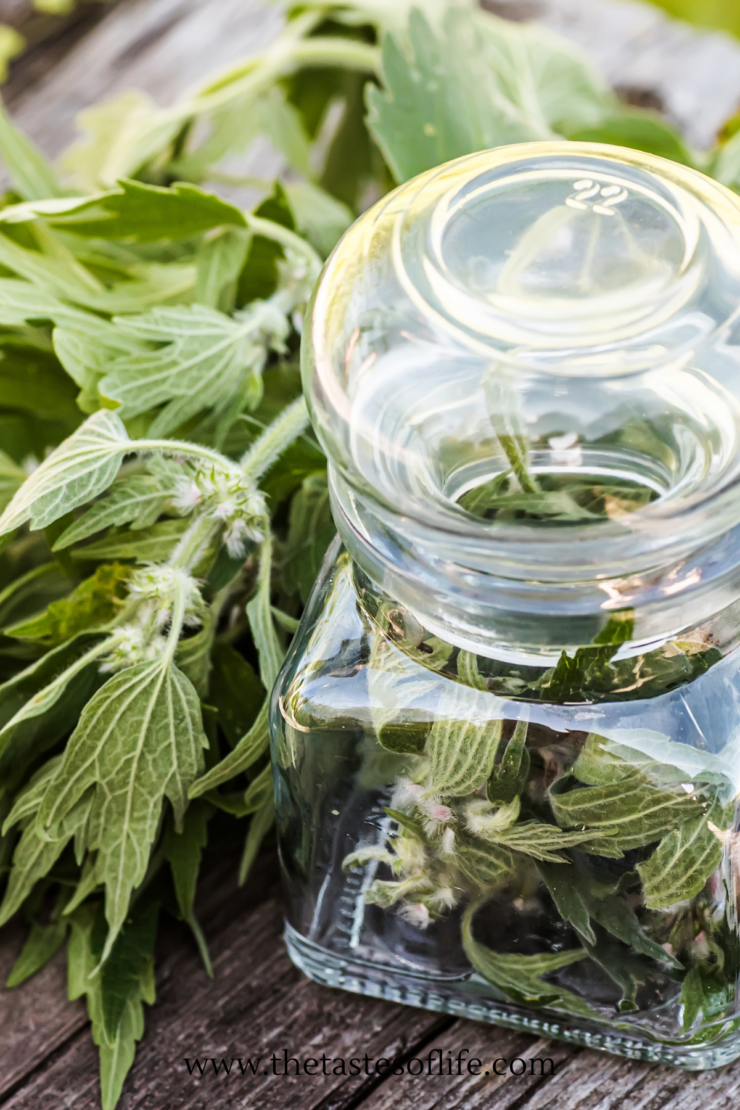
Who Should Not Take Motherworth
- Pregnant Women: Motherwort has traditionally been used to support women’s health, including during pregnancy and childbirth.
- Breastfeeding Women: Similarly, there is limited information on the safety of Motherwort for breastfeeding women and their infants. While it is traditionally used to support lactation, it’s essential to consult with a healthcare professional before using
- Individuals with Bleeding Disorders: Motherwort may have mild blood-thinning effects, so individuals with bleeding disorders or those taking anticoagulant medications (e.g., warfarin, aspirin) should avoid using Motherwort without medical supervision. Combining Motherwort with these medications may increase the risk of bleeding or bruising.
- Individuals with Low Blood Pressure: Motherwort has mild hypotensive (blood pressure-lowering) effects, so individuals with hypotension (low blood pressure) should use caution when taking it. Combining Motherwort with medications or supplements that lower blood pressure may further reduce blood pressure levels, leading to dizziness, lightheadedness, or fainting.
- Surgery Patients: Due to its potential blood-thinning effects, individuals scheduled for surgery should discontinue the use of Motherwort at least two weeks before the scheduled procedure to reduce the risk of excessive bleeding during surgery.
Consult with a qualified healthcare provider before starting any new herbal supplement, especially if you have underlying health conditions, are pregnant or breastfeeding, or are taking medications.
Is Motherwort Good for Anxiety
Yes, Motherwort (Leonurus cardiaca) is often used traditionally and in herbal medicine for its calming and nervine properties, making it potentially beneficial for anxiety. Here’s how Motherwort may help with anxiety:
- Nervine Properties: Motherwort contains compounds that act as nervine tonics, which means it has a calming effect on the nervous system. This can help reduce feelings of nervousness, tension, and anxiety.
- Sedative Effects: Motherwort has mild sedative properties that can promote relaxation and ease restlessness. It may help soothe the mind and body, making it easier to manage feelings of anxiety.
- Heart Health Support: Motherwort is believed to have cardiovascular benefits, including regulating heartbeat and reducing palpitations. By supporting heart health, Motherwort may indirectly help alleviate anxiety symptoms associated with heart palpitations or racing heartbeat.
- Stress Reduction: Chronic stress can exacerbate anxiety symptoms. Motherwort’s calming effects may help reduce stress levels, providing relief from the physical and emotional symptoms of anxiety.
- Sleep Promotion: Anxiety often interferes with sleep, leading to insomnia or restless sleep patterns. Motherwort’s mild sedative properties may help promote relaxation and improve sleep quality, which can be beneficial for managing anxiety.
More About Herbs
How To Make Immunity Boosting Herbal Winter Tea Recipe
References:
https://pubmed.ncbi.nlm.nih.gov/33017723/
https://pubmed.ncbi.nlm.nih.gov/33017723/
https://pubmed.ncbi.nlm.nih.gov/31195353/
https://pubmed.ncbi.nlm.nih.gov/35401190/
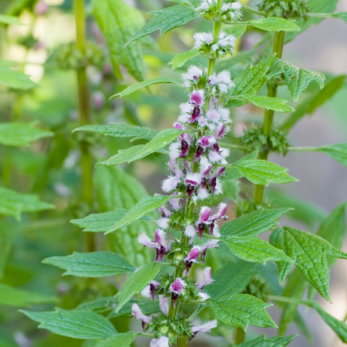
Ingredients
- 1 part Motherwort Dried, leaves and flowers
- 2 parts Alcohol High-proof (such as vodka or brandy)
Instructions
- Prepare the Herbs: Start by ensuring that your dried Motherwort leaves and flowers are clean and free of debris. If needed, gently crush the dried herbs to increase surface area and enhance extraction.Combine Herbs and Alcohol: Place the dried Motherwort herbs in a clean glass jar. For every part of dried Motherwort, add two parts of high-proof alcohol to the jar. Ensure that the herbs are fully submerged in the alcohol to facilitate extraction.Label the Jar: Label the jar with the date of preparation and the ingredients used. This will help you keep track of the tincture's potency and expiration date.Infuse the Mixture: Seal the jar tightly with the lid and shake it vigorously to mix the herbs and alcohol thoroughly. Place the jar in a cool, dark place, such as a cupboard or pantry, and let it infuse for 4-6 weeks. Shake the jar gently every few days to agitate the mixture and promote extraction.Strain the Tincture: After 4-6 weeks have passed, strain the infused mixture through a fine mesh strainer or cheesecloth into a clean glass bowl or measuring cup. Squeeze the herbs to extract as much liquid as possible. Discard the spent herbs or compost them.Bottle the Tincture: Transfer the strained liquid tincture into amber glass dropper bottles for storage. Amber glass helps to protect the tincture from light exposure, preserving its potency. Secure the dropper caps tightly on the bottles.Label and Store: Label each bottle with the name of the tincture, the date of preparation, and any other relevant information, such as the botanical name (Leonurus cardiaca). Store the bottles in a cool, dark place away from direct sunlight, heat, and moisture.
Notes
- To use the Motherwort tincture, shake the bottle well to ensure thorough mixing of the tincture before each use. Using the dropper, administer the desired dosage directly under the tongue or diluted in a small amount of water or juice.
- The typical dosage for Motherwort tincture is 20-40 drops, taken 1-3 times per day, or as directed by a healthcare professional.
- Always start with a lower dosage and gradually increase as needed while monitoring for any adverse reactions.
- Consult with a qualified healthcare practitioner before using Motherwort tincture, especially if you are pregnant, nursing, or taking medications.




